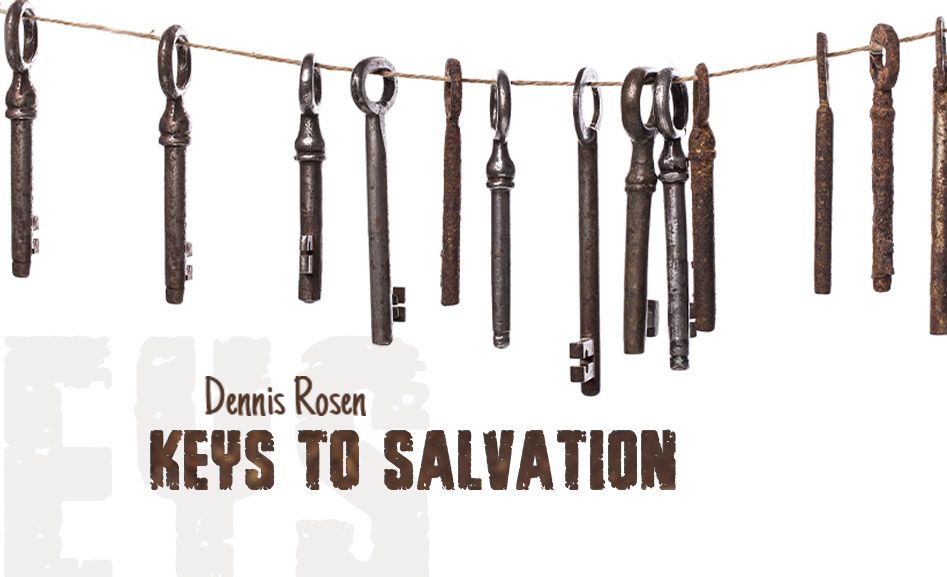
The Fear of Missing Out
Happy people strive to be humble, content, service-oriented and not focused so much on themselves. Authentic joy is a product of our sincere interest in helping others...

“I place before you the blessing and the curse. . . ”[Deut. 30:19].
The Torah’s curses are really blessings in disguise. We have only to prepare ourselves to be a kli, a vessel, to receive them as blessings. So what is the plague of FOMO, and is it a modern day version of a curse? FOMO—the Fear Of Missing Out— is a very intense and anxiety-producing phenomenon common especially among the Millenials, those born between 1984 and 2004. It is produced by the negative energy of discontent and a strong desire for popularity, causing us to make poor choices. It comes from a place of dissatisfaction with what is and the haunting voice of the snake, the yetzer hara, telling us that we are not fully alive—-that there is so much more fun to have. We start yearning for something more. The plague of “dissatisfaction with what is” leads us away from living in the present moment. The past is a memory, and the future is unknown, so we must cherish the present as a gift. Those who fall prey to FOMO, however, focus on what they lack.
FOMO is a serious contemporary ailment resulting from a misalignment of the soul with its Source. This disconnection leads to falling prey to all sorts of fears and addictions. The ego has been allowed to take charge. That is what prompts us to start checking all our contacts—-Facebook, Twitter, What’sApp—-to see the events to which we were not invited. We start feeling negative, alone, left out, unwanted, insignificant, and filled with negative emotions. Does this sound familiar? Do all of us know people who are on the prowl looking for the next big thrill? Of course, we do. We start thinking that we need to stand out, be noticed, and be on the move, and, then, we begin checking the screen (phone, computer, i-pad) for the  latest “fun” happenings. Judaism teaches the opposite: That happy people strive to be humble, content, service-oriented and not focused so much on themselves. Authentic joy is a product of our sincere interest in helping others.
latest “fun” happenings. Judaism teaches the opposite: That happy people strive to be humble, content, service-oriented and not focused so much on themselves. Authentic joy is a product of our sincere interest in helping others.
By virtue of the fact that this syndrome has a name, we can ascertain that it has become widespread, if not epidemic. It expanded and became contagious when the ways to make the world smaller through technology were utilized for selfish purposes. Is there a cure for this nagging phobia? When we share thoughts of emuna, when we connect with each other for the purpose of inspiration and learning, and when we try to help others, then we block FOMO. However, when we use these same advancements for the detriment of our souls—-for posting descriptions of personal events in our lives, for bragging about fun times or accomplishments, and for prying into the lives of others—-we cannot expect the happiness we are seeking. Negative energy lurks behind the smiling faces because all-too-often people become jealous, begin to question their own level of joy, and begin to clamor for more excitement, more interaction, and more diversions.
It appears as though the root cause of this disorder is the weakening and disintegration of the family unit brought about by the failure to invite Hashem into our lives. When we feel secure and anchored, we do not need to look for the next big thrill. Our families and friends sustain us. We derive meaning and purpose when we know who we are, where we came from, and where we are going. This sounds very much like an ideal situation where no link in the familial chain was ever broken. The question remains as to what if one’s family is not like that? What if we don’t have meaningful connections that anchor us? What then? When that occurs, we stop spiraling by slowing down and making a decision not to follow the crowd—-not to get pulled in to the illusions and confusions of contemporary life. We take stock of our own lives and consider making an about face despite what others are doing.
It may be helpful to seek out a mentor, a person trained in understanding core principles of successful and happy living and how to make sense of what is occurring. Our minds are like computers. They are programmed with information. It is a good idea to check the data to be sure it is clean and free of viruses. Before long, the plague of FOMO will be a thing of the past for those of us committed to working on our true selves—our holy souls. However, we must want to change our focus, be patient, spend some quiet time in reflection, release falsehoods, and use technology as a source of inspiration and wisdom. The choice is an individual one: The blessing or the curse?
***
Any questions, feel free to e-mail Lori at thechaiway@gmail.com







Tell us what you think!
Thank you for your comment!
It will be published after approval by the Editor.